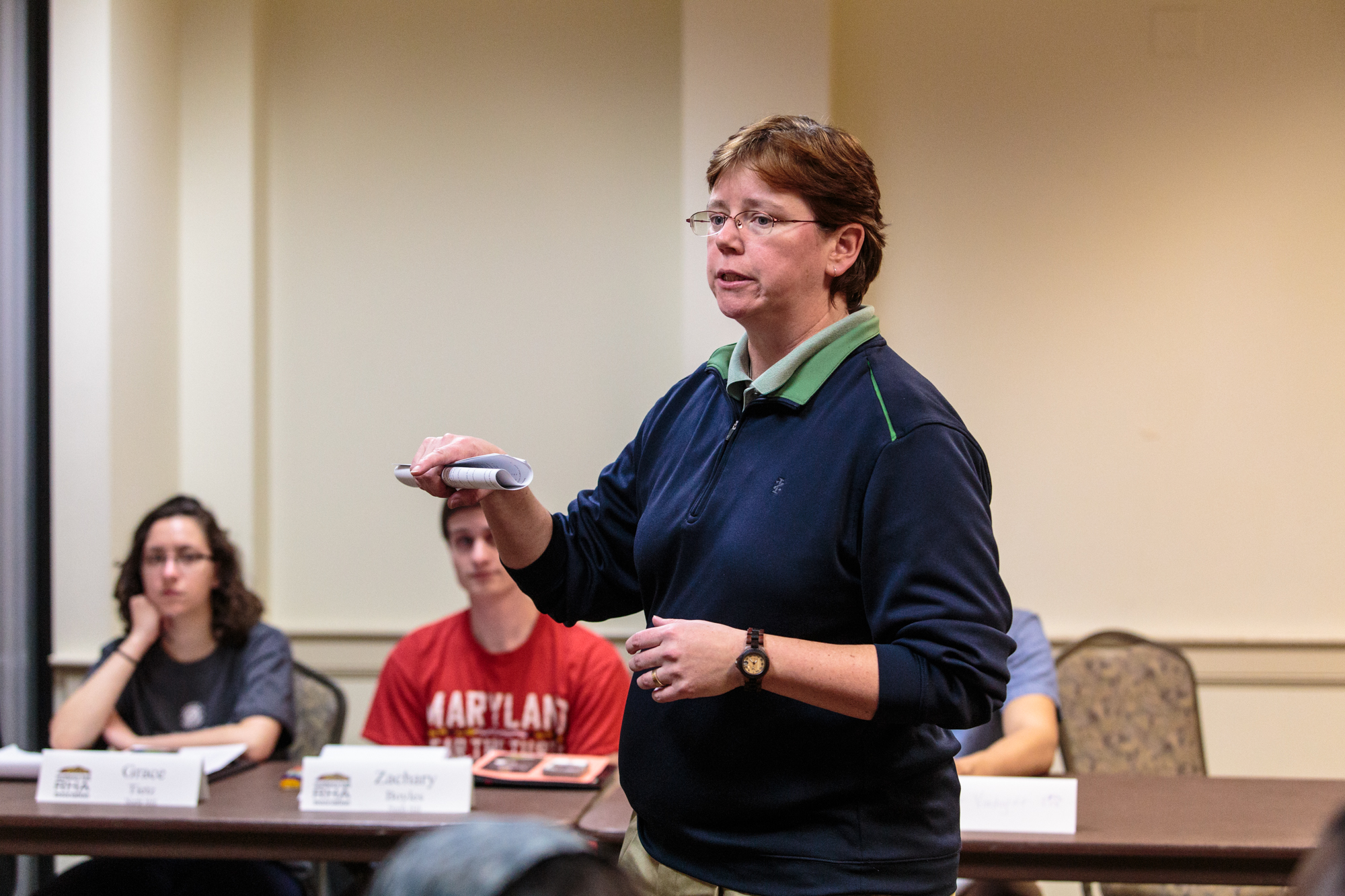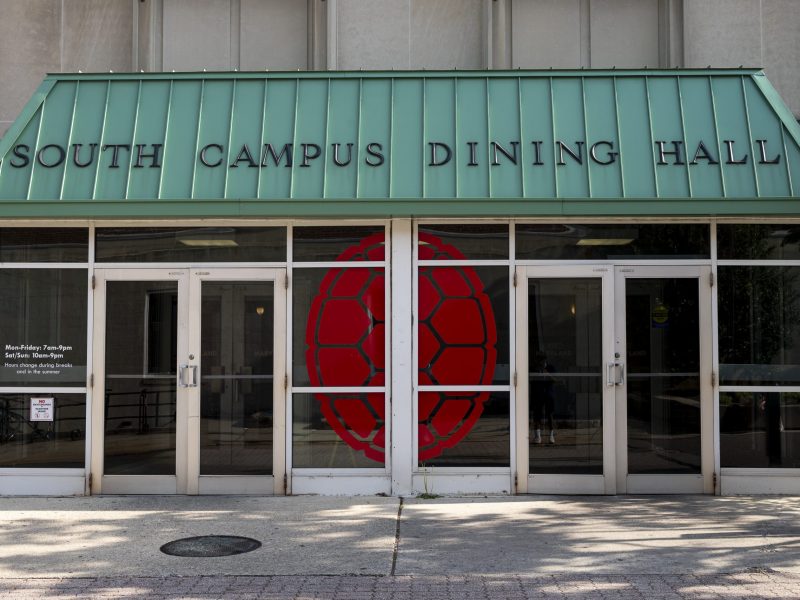A substance-free housing option could be available to University of Maryland students as early as next fall, Resident Life Director Deborah Grandner said.
“Some [students] have contacted me, or their parents have contacted me, because they are looking to find housing that will help them to succeed here while they’re at Maryland, where they won’t have to face some of the pressures associated with drug and alcohol use,” Grandner said to about 50 students at a town hall meeting last week in Stamp Student Union.
Although all dorms are technically substance-free, in that they prohibit students under 21 to possess alcohol, this housing option would provide a community for students who choose to live an alcohol- and drug-free lifestyle, Grandner said. Students in these dorms would likely have to pledge to avoid drinking alcohol or doing drugs.
Erin Iverson, Department of Resident Life chairwoman and Resident Life assignments and public inquiry manager, said her committee also conducted a survey in fall 2015 among then-current residents to gauge interest in a substance-free housing option. The survey was sent to 1,500 campus residents and saw a response rate of 47 percent. Of those who responded, 18 percent said they were either interested or very interested in living in a substance-free housing option, Iverson said.
This fall, the committee added questions to Resident Life’s RoomSync application that centered around substance-free lifestyles, Iverson said.
The committee is still considering a number of housing options, such as an entire dorm dedicated to the community with a smaller building, allocating a few floors to substance-free living in a larger dorm or designating a set of apartments, Iverson said. The committee is also considering how to keep residents of a substance-free dorm accountable to their pledge, and the group will finalize its decision in February.
The push for substance-free housing is part of a larger investigation into how this university addresses student drug and alcohol use and addiction, Grandner said.
“We decided to look in a larger way about how the campus supports students around recovery overall, like through the health center, housing, through the programs that are offered on campus, through support groups,” she said, adding that Resident Life hired a company to assess what this university’s next steps should be to assist students in recovery.
Some Big Ten universities have already instituted similar programs, including Michigan State University and the University of Wisconsin, which offer substance-free rooms and floors, respectively. Other schools like Northwestern University and the University of Illinois offer substance-free dorms.
This university’s Residence Hall Association is playing an “advisory role” in this process, said RHA President Steve Chen, a senior biology and global health major.
Grandner visited a sober housing option run by a program called The Haven at Drexel University in Philadelphia. The program also has drug- and alcohol-free housing at four other universities, which are all located in California, according to its website.
This option is meant for students with a history of substance abuse issues, and includes professional advisers and peer advisers for students in recovery from drug or alcohol addiction, according to the Drexel University Office of Counseling and Health Services website.
Although The Haven is specifically for students in recovery, this university’s program would likely include students who merely choose to live an alcohol- and drug-free lifestyle, Iverson said.



